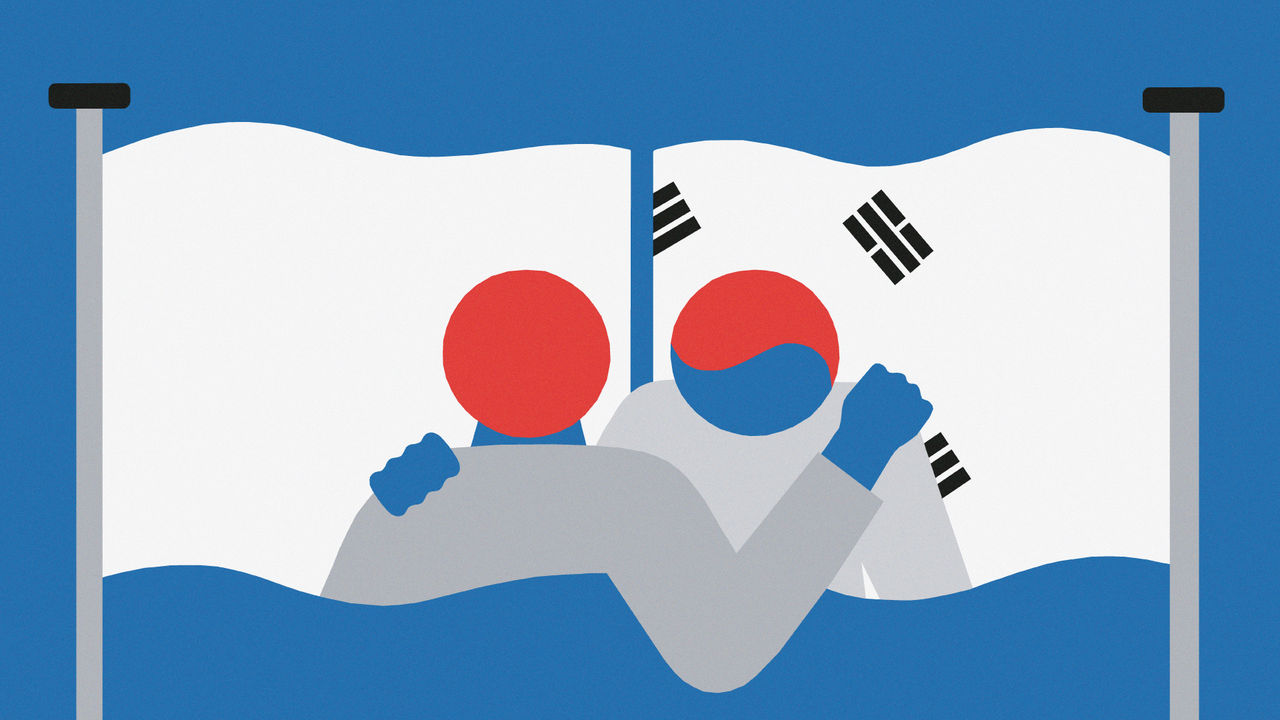There are many countries across the world which share difficult relations with each other, like Iran and Israel, India and Pakistan, or China and the U.S. These tensions are often about power, borders, or political influence. But when it comes to Japan and South Korea, the situation is far more complicated. It’s not just about trade or military but their relationship is deeply shaped by history, nostalgia, and emotion. That’s what makes it both unique and challenging.
If we look back historically, one of the main reasons behind this complicated relationship is ‘colonialism’. Japan ruled over Korea from 1910 to 1945 and during those 35 years, Koreans suffered immensely. The occupation wasn’t just political; rather it was deeply personal. People were tortured, women were exploited as so called “comfort women,” and Korean identity itself was suppressed. Sadly, that’s what colonial rule often looks like. We’ve seen similar things through the lens of India during British the rule, where humiliation and oppression were part of everyday life. For Koreans, the memories of Japan’s actions during that period are still very much alive, something which they can never let go completely.
Now we might ask, why did Japan wanted to rule Korea in the first place?
It wasn’t just a random decision. Back in the late 1800s and early 1900s, colonialism was at its peak. Bigger powers were building empires; India was under British rule, and other Asian and African countries were being occupied too. Japan, which had modernized rapidly and wanted to compete with Western powers, also began expanding its reach. Korea, at the point of time, was politically unstable, economically weak, and struggling internally due to dynastic rule and corruption. This made Korea vulnerable. Countries like China and Russia were also eyeing Korea, but Japan managed to defeat them and eventually annexed Korea in 1910.
Controlling Korea gave Japan a strategic and economic advantage. Korea’s geographic location made it a gateway to the rest of Asia. Japan also wanted to exploit its resources : land, minerals, water, and labour. Having control over Korea boosted Japan’s image as a rising empire similar to how countries today try to establish global dominance. But Koreans never accepted this quietly. There were several uprisings, protests, and movements for independence. Still, Japanese rule continued until 1945, when Japan lost World War II after the atomic bombings of Hiroshima and Nagasaki. That’s when Korea was finally freed but soon after, it was divided into North and South Korea, a division that still exists today.
Japan and Korea Relations
Now let’s fast forward to modern times, economic and strategic needs have brought Japan and South Korea closer to a certain extent at least on the surface. No country is fully self-reliant, and trade has become the backbone of many diplomatic relations. Japan and South Korea are powerful economies, and they trade in electronics, automobiles, and machinery. If you think of companies like Samsung (Korea) and Sony or Toyota (Japan); they’re global giants that rely on stability and smooth relations. Both countries also share a strong military partnership with the United States, especially in managing threats from North Korea.
There’s also been a huge cultural exchange. From K-pop and Korean dramas to Japanese anime and fashion, the two cultures influence people all over the world, including here in India. These soft power exchanges show that while the governments may struggle with politics, people are more open to connecting through culture.
But let’s be honest, good trade and cultural ties don’t erase history, right ? Are we able to forget our Kohinoor? Unfortunately no, it’s something which is still fresh in our minds. The emotional wounds haven’t fully healed. Many Koreans still feel that Japan hasn’t offered a sincere, full apology for its colonial actions, especially around the forced labour and the ‘comfort women’ issues.
If we flip the coin to the other side, Japan believes that it has apologized sincerely and moved on. This mismatch in perception keeps tensions alive. Forgiveness is never simple especially when it involves national trauma.
As of now in 2025, the relationship is facing a new wave of challenges, especially around global trade. Former President, Donald Trump has threatened 25% tariffs on imports from both Japan and South Korea, with a deadline set for August 1, 2025. This has caused economic shockwaves in both countries, and their leaders are currently rushing to Washington for emergency negotiations. Trade is a lifeline, and in today’s fragile global economy, no country can afford to ignore it especially when elections are just near at hand, like in Japan. The pressure is genuinely huge.
At the same time, their security partnership is stronger than ever, all thanks to the growing missile threats from North Korea. Since 2023, Japan, South Korea, and the United States have conducted joint military drills and strategic planning, reinforcing a trilateral defense alliance.
Domestically too, the situation is extremely tensed. South Korea’s central bank recently hinted at a possible interest rate cut, citing “significant uncertainty” caused by the U.S. tariff threats. Economies are delicate right now, and these global moves are being felt directly by local businesses and citizens, they are being affected a lot. Adding to this, U.S. Senator Marco Rubio made his first official visit to Asia, signaling just how serious the U.S. is about its trade pressure and influence in the region.
So where does that leave Japan and South Korea Relations, now?
In a single line to conclude, ‘Japan and South Korea relations is still evolving’. It’s built on centuries of shared culture, decades of conflict, and years of cooperation. While wounds from the past haven’t fully healed, the realities of today’s world especially the trade, security, economy are forcing both sides to keep talking, negotiating, and moving forward. And maybe, slowly, that’s how trust will be rebuilt. And connections will run smoother.
Article by SHITAL BARAILY

